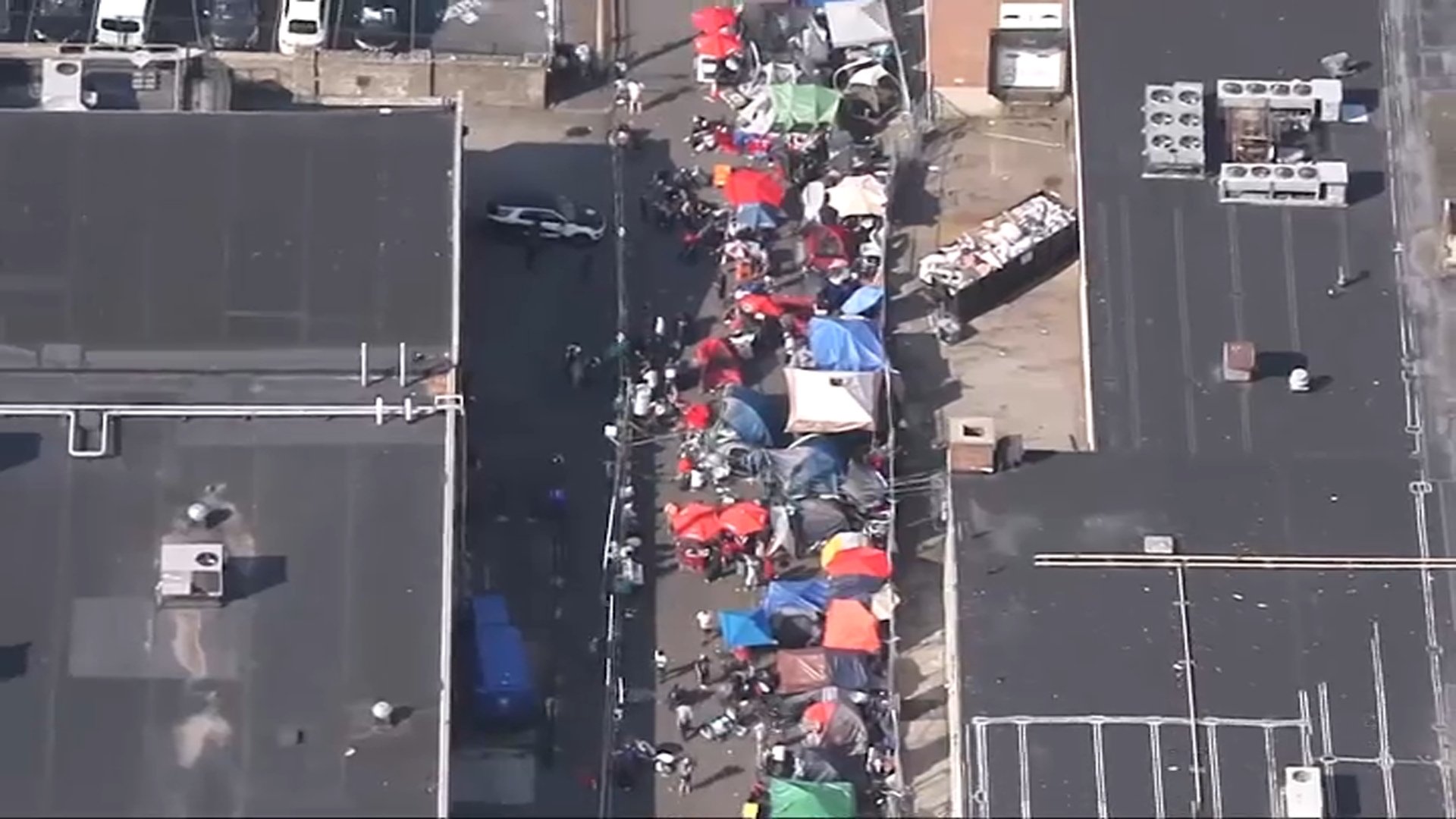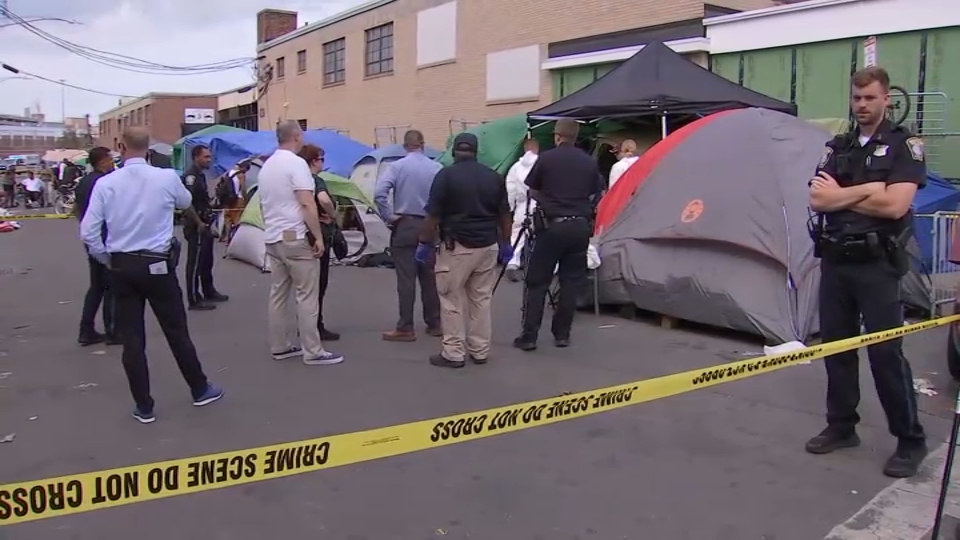A day after Boston Mayor Michelle Wu warned the area around Melnea Cass Boulevard and Massachusetts Avenue had reached a "new level" of public safety concern, lawmakers who represent the district pushed for law enforcement to play an increased role in keeping it clear.
Ten police officers are now working in the Mass. and Cass area 24 hours a day. Boston EMS told NBC10 Boston in a statement that the situation represents "a public health and safety crisis for our members, patients, and the surrounding community," adding that the encampment has "impeded emergency response access in and around that area."
"It's definitely more violent," said Persia Brewer, who used to live in the encampment. "You can't even bump into somebody in there without possibly someone pulling out a knife on you."
She was able to leave the encampment at the corner of Atkinson and Southampton streets a few months ago. Now, "it's just a horrible, horrible, horrible scene," she said.
The encampment is a hot spot for drug and human trafficking, according to Wu. In early 2022, she worked to clear the encampment and re-house people who lived there while connecting them with other services. But given the conditions now, she's acknowledged that the problem needs a new approach.
"It's an issue where we have to separate out what the city is able to do and how we make sure that, above all else, everyone in the area is safe," Wu said Wednesday.
Wu and the City Council were working on a new strategy to address the issue, but it wasn't immediately clear what it would entail and when it would be implemented.
On Thursday, there were new calls for action from the state lawmakers who represent the area that includes Mass. and Cass.
Rep. John Moran asked Boston and state police to launch a warrant sweep and eliminate any tents and unpermitted structures there, writing in a letter to the leaders of both agencies that the "worsening public health and safety crisis" at Mass. and Cass has become "increasingly dire."
Moran said the goal of the sweep would be targeting people who have a history of violence, sexual assault, drug distribution and human trafficking. He also urged them to eliminate and enforce bans for "tents, lean-tos, and any other unpermitted structure, temporary or permanent, in the area."
While Moran acknowledged people are doing "the very best that they can" to tackle the mental health and addiction crises in the area, he described Mass. and Cass. as an open-air drug market that's "propelled by a sophisticated criminal network" -- and where people are experiencing physical and sexual violence, as well as human trafficking.
State Sen. Nick Collins called for more support for law enforcement and said the "strictly harm reduction and containment policy ... is clearly failing."
"We can no longer sit by and watch as part of our City and Commonwealth descends into a disgraceful vortex of drugs, human trafficking, toxic waste and violence," Collins said. "This is a public health and safety emergency, so it requires a public health and safety response."
One long-term solution the city has been advocating for is reconstructing a bridge to the city's Long Island, which housed a drug treatment center that had to be closed when the bridge was dismantled in 2014 for safety concerns.
In June, the U.S. Coast Guard gave a tentative approval to rebuilding the bridge, but the city of Quincy — where the bridge from the island would run — continues to oppose doing so. Members of the Quincy City Council recently sent a letter to members of the state's congressional delegation asking them to intervene.
"Let’s stop fighting about the bridge. Let’s start getting people help. There has to be a plan. There’s no plan. No structured plan of what’s going to be on the island," City Councilor Bill Harris said.
The State House News Service contributed to this report.




